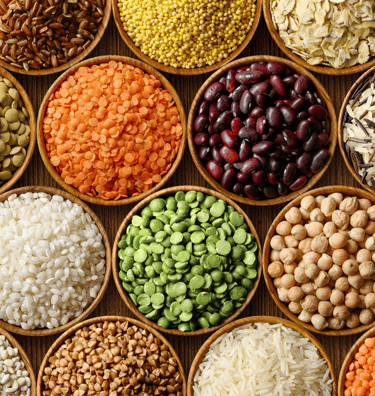Protein Options for Mixed Diets
In a mixed diet—combining both plant and animal-based foods—there is an array of protein sources available that can provide essential nutrients and support overall health and well-being.
In a mixed diet—combining both plant and animal-based foods—there is an array of protein sources available that can provide essential nutrients and support overall health and well-being.
Animal-Based Protein Sources:
Animal-derived foods like poultry, fish, lean meats, eggs, and dairy products offer complete proteins rich in essential amino acids. They are particularly valuable for muscle building and repair.
Plant-Based Protein Sources:
Plant foods such as legumes (beans, lentils), nuts, seeds, soy products (tofu, tempeh), and whole grains contribute protein, fibre, vitamins, and minerals. These options can be an integral part of a mixed diet, offering diverse nutrient profiles.
Combining Proteins:
Complementary combinations of plant-based foods can create complete proteins. Pairing legumes with grains or nuts/seeds enhances the protein quality. For instance, rice and beans or hummus with whole grain pita bread.
Protein Supplements:
In cases where protein intake needs supplementation, protein powders derived from whey, pea, or soy protein can be beneficial.
Consideration of Diversity:
A mixed diet allows for variety, promoting a wider range of nutrients. Diversifying protein sources fosters a balanced and enjoyable eating experience.
A mixed diet featuring both animal and plant-based protein sources can offer a broad spectrum of nutrients, potentially reducing the risk of dietary deficiencies while catering to individual preferences and dietary needs.


